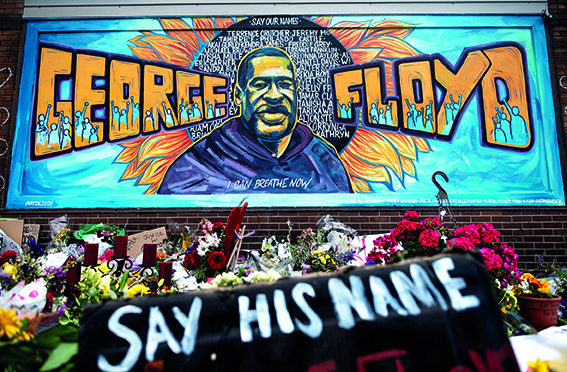
(© Getty)
This week’s issue of The Week Junior includes a report on the protests that have erupted across the US and elsewhere in the world. Many of the protests are peaceful but some have been violent. Images of these clashes, as well as the tragic event that led to the unrest, are upsetting and it is natural for you to feel angry, sad or worried about them. Here are some tips to help you deal with your thoughts and feelings.
At times like this it is important to remember:
• You are not alone. People all over the world are horrified and outraged by what happened to George Floyd, and upset by the violence that has followed. The fact that you are worried or upset by what’s happened is a natural reaction.
• Many people including world leaders and politicians, as well as members of the public, are working hard to bring racism, injustice and inequality to an end. Everyone, everywhere has an equal right to life, opportunity and justice. You can do your part by standing up for anyone who you think has been unfairly treated because of their skin colour or race.
• Bottling up your feelings can make them overwhelming, so if you are upset, talking about your feelings to a parent or a trusted adult will make you feel better. If you don’t feel like confiding in someone, try writing down how you feel instead, or draw a picture to express your emotions. If you are feeling angry it can help to do some exercise.
• Educate yourself. Learning more about race and racism will help you to make sense of what is happening. Everyone needs to learn, think and talk about racism in order to stop events like this happening again. There are lots of books for children that will answer some of the questions you may have. A good one to start with is What is race? Who are racists? Why does skin colour matter? And other big questions. by Claire Heuchan and Nikesh Shukla. The charity Childline has information about racism and racist bullying on their website as well as advice for anyone who has been treated badly because of their race.
• Think positive. Remind yourself of times when you have felt happy or something that makes you smile, or do something that will take your mind off it. Reading a book, drawing a picture, playing a game, riding your bike or even just getting out in the garden will force you to think about something different. There are lots of inspiring news stories in The Week Junior about people who are being kind and doing good.
IF YOU NEED HELP
It’s normal to feel sad or worried for a little while after hearing bad news but if you are having trouble sleeping or your feelings are affecting how you behave or making you feel unwell then make sure you ask for help. Make sure that you talk to a parent or an adult you trust if you are unhappy or anxious about what you are hearing and seeing. If you don’t feel able to talk to a parent or a teacher about this, charities such as Childline, the NSPCC and Young Minds will be able to offer expert advice and guidance.